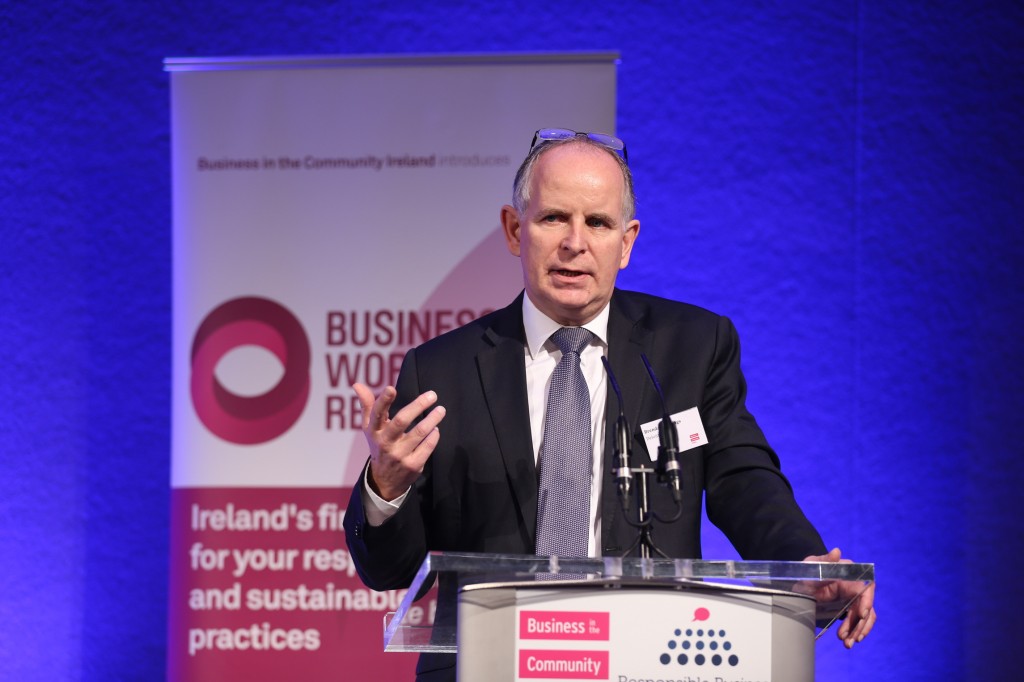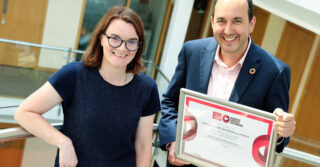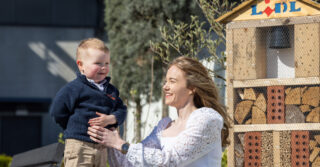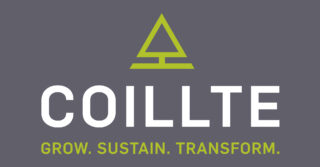CSR is a fundamental issue at Deloitte
For Brendan Jennings, Managing Partner of professional services firm Deloitte, corporate and social responsibility is not just a big deal, it’s an all-pervasive one.
“I see CSR as a fundamental issue for us and I see it in broader terms than perhaps people have traditionally viewed it,” said Jennings.
“Our role in society is very different from that of other corporate or manufacturing entities. A huge amount of our work is in relation to audit opinions and other reports providing assurance. When something comes into the market that has ‘Deloitte’ on it, it means a huge amount, particularly in capital markets. Our corporate responsibility therefore relates to not just our stakeholders but to all those who rely on and trust us. As such, it runs to the core of the firm.
Deloitte has 1350 employees in Republic of Ireland and 55 partners. The significant amount of work it does in the community, such as its Impact Day, when hundreds of staff undertake voluntary work for charity, is hugely successful and very important to the firm. In some ways however, there is a risk that this success can dominate the CSR agenda, he said.
 “What I don’t want is for our staff to hear CSR and just think ‘IMPACT Day’, or volunteering, or even something relating to the environment,” he said. “Those things are all very important, and our people want to do them, but CSR is a much broader concept than that.”
“What I don’t want is for our staff to hear CSR and just think ‘IMPACT Day’, or volunteering, or even something relating to the environment,” he said. “Those things are all very important, and our people want to do them, but CSR is a much broader concept than that.”
For Jennings, CSR is central to Deloitte’s ‘purpose’. “Organisations that are clear in their purpose achieve more. Our purpose is to be a quality provider of services in the Irish market, one that does its best for its clients, its people and the wider community, and one that can stand over everything it does,” he said.
“In relation to the clients we serve, it means doing our very best, for a fair fee. When it comes to our people, who are our greatest and, indeed, only asset, if they believe in doing things the right way, good corporate governance is easier to ensure.”
It’s a virtuous circle because good corporate governance, in turn, protects the business.
“When your people know why they are doing what they do, that helps protect not just the organisation but the brand and the client too. That is what makes CSR so hugely powerful, and about far more than fundraising or volunteering,” said Jennings.
Going for, and achieving, the Business Working Responsibly mark from Business in the Community is for him a key tool in ensuring that all stakeholders share this broad view of what CSR is.
“The Mark gave me something to latch on to in order to move CSR on from community or environmental issues into this wider context,” he said.
The business benefits of good CSR practices are, he admits, hard to measure in terms of the bottom line but results in increased discretionary input from staff – “people go that extra bit, to ensure the job is done right, and that’s invaluable to us”, he said.
This strong sense of purpose at Deloitte helps engage its workforce, a third of which is under 25. Three quarters of its employees are under 35.
“It’s a hugely young organisation. When we go to recruit, we find that young people are actively interested in our CSR ethic. They want to know how we engage with society and they want evidence that we are doing the right thing, that we are giving something back.”
The Mark helps provide them with externally validated reassurance but recruiting isn’t the only area in which such validation helps. “Increasingly in tender situations, where we are pitching for contracts, we are asked questions around our CSR policies and practices. At the moment this is particularly the case in relation to our green agenda and here too, the Mark helps us tell that story.”
The fact that getting, – and keeping – the Business Working Responsibly mark is difficult appeals to him. “Getting it challenges you as an organisation and, when you get it, the challenge then is not to lose it. That said, it’s important to be clear – I don’t undertake CSR to ensure we have the Mark, I want the Mark so that it can make a difference to our business internally.”
It makes a difference externally too. “We are seeing increased interest in our CSR activities from our clients, including more requirements around our CSR and environmental policies,” said Deloitte’s Corporate Social Responsibility Director, Gerry Keating.
There are other drivers too, including the advent of combined reporting, whereby companies increasingly give not just a financial account of their activities, but a CSR one too. Managing environmental impact is also increasingly important to business sustainability.
Achieving, and keeping, the Mark is for him a way of ensuring a company is at the leading edge of best practice on all these fronts.
“At Deloitte we strive to be the standard of excellence in all that we do, which is why we went for the Mark,” said Keating. “But it’s one thing to say ‘We are the standard of excellence’. It’s quite another to have someone else say it for you.”
Find out more about the Business Working Responsibly mark and the list of companies that have been so far certified.
Tags:






